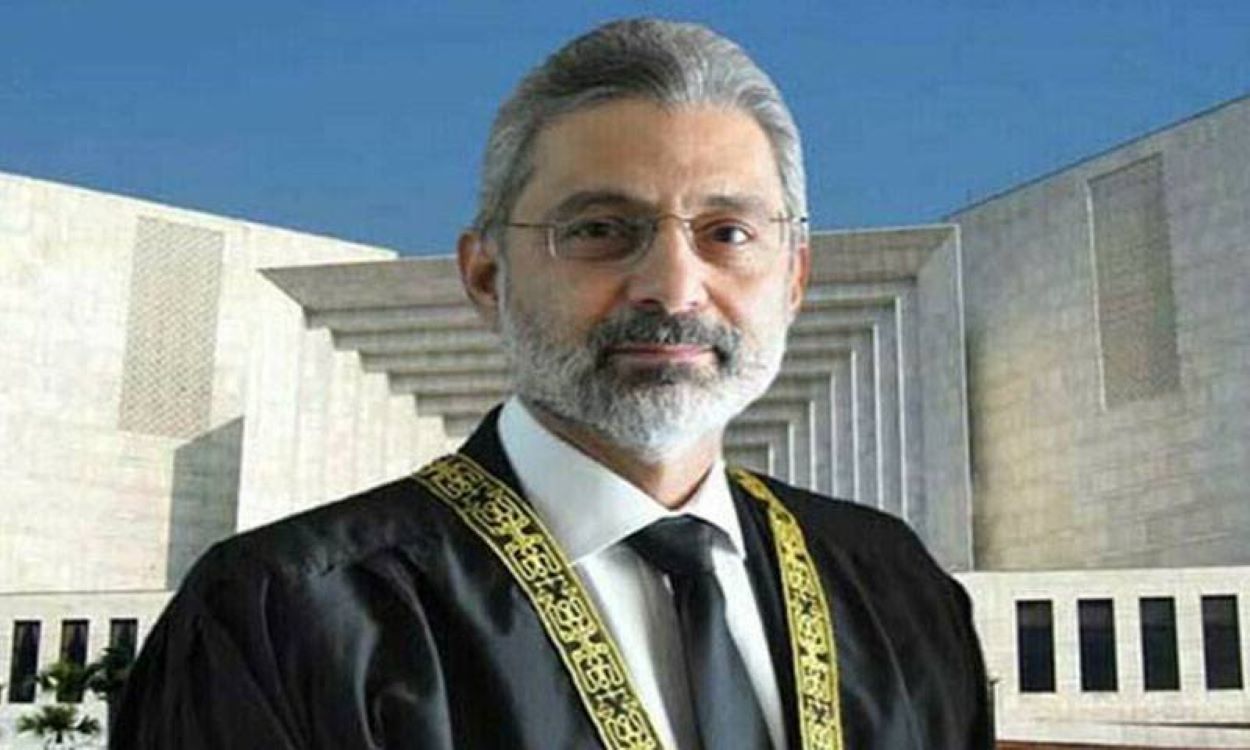After extending over three years, Chief Justice of Pakistan (CJP) Qazi Faez Isa breathes new life into the Supreme Judicial Council (SJC) by scheduling a crucial meeting. Set for 11:30 a.m. on Friday, this assembly marks the inaugural session under CJP Isa’s leadership.
The primary agenda is examining several complaints against superior court judges, notably Justice Sayyed Mazahar Ali Akbar Naqvi.
The SJC, a constitutional body with the exclusive authority to investigate and potentially expel superior court judges, is witnessing this resurgence as an effort to uphold judicial accountability. Chaired by CJP Isa, the Council’s composition includes esteemed apex court figures such as Justice Tariq Masood and Justice Ijaz Ul Ahsan.
Addressing Long-Standing Complaints Against Justice Naqvi
In the spotlight is Justice Naqvi, the subject of multiple misconduct complaints. These grievances, initially brought forth by Lahore lawyer Muhammad Dawood and subsequently by the Pakistan Bar Council (PBC), gained significant traction following controversial audio leaks. These leaks allegedly involve discussions regarding case assignments, further implicating the judge’s conduct within judicial circles.
The upcoming session is anticipated to delve deeply into these allegations. Particularly, Justice Masood’s legal opinion, submitted earlier in September, on the cases against Justice Naqvi will be a point of discussion. This detailed scrutiny follows consistent advocacy for such a review by senior judges, including Justices Isa and Masood.
Upholding Judicial Integrity: A Constitutional Mandate
The rejuvenation of the SJC’s activities comes as a significant step towards preserving the judiciary’s integrity, as highlighted in a joint statement by Justices Isa and Masood. Referring to Article 209 of the Constitution, they emphasized the Council’s responsibility to either vindicate the accused judges or proceed with constitutional action, thereby restoring faith in the judicial system’s independence and righteousness.
The meeting, therefore, marks a pivotal juncture in Pakistan’s legal landscape, potentially setting a precedent for transparency and accountability within the judiciary ranks. This move is especially significant considering the nature of the allegations and the high-profile individuals involved, reinforcing the judiciary’s commitment to self-regulation and integrity.






